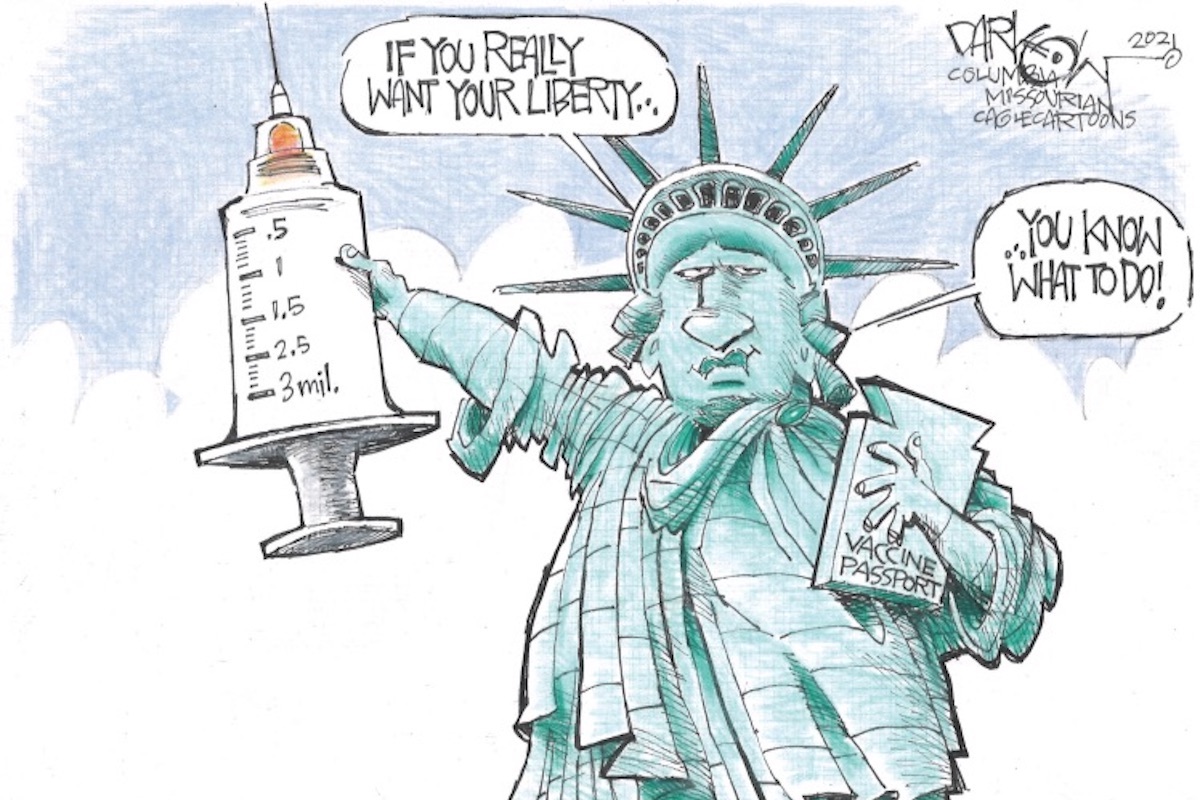On Constitutional Challenges to COVID Vaccination Requirements
They're Been Upheld by the Supreme Court since 1905

A recent Gallup poll indicated that most Americans support COVID-19 vaccine mandates, but a vocal minority continue to be opposed. That opposition surfaced locally when the Santa Barbara Unified School District Board of Education recently tightened vaccination requirements for all staff by eliminating a testing alternative. That action was taken after a report that an unvaccinated staff member may have transmitted COVID-19 to students. Without strengthening the mandate, parents had no way of knowing whether staff members at their child’s school were vaccinated.
Opponents to the move spoke at the board meeting, with several claiming that their constitutional rights were being violated. As the lawyer for the board, I explained that vaccination requirements have consistently been upheld by the courts in the face of legal challenges based on individual liberty arguments, beginning with a U.S. Supreme Court decision in 1905. There, in upholding mandatory smallpox vaccinations, the court found that the “common good” outweighed individual liberty interests. It said, “the liberty secured by the Constitution of the United States to every person within its jurisdiction does not import an absolute right in each person to be, at all times and in all circumstances, wholly freed from restraint. There are manifold restraints to which every person is necessarily subject for the common good. On any other basis organized society could not exist with safety to its members. Society based on the rule that each one is a law unto himself would soon be confronted with disorder and anarchy. Real liberty for all could not exist under the operation of a principle which recognizes the right of each individual person to use his own, whether in respect of his person or his property, regardless of the injury that may be done to others.” Courts have consistently followed this precedent and have upheld mandatory vaccination laws over challenges based on the First Amendment, Equal Protection, the Due Process Clause, the Fourth Amendment, educational rights, and privacy rights.
The most recent court case in New York is no exception. New York City schools were scheduled to require COVID-19 vaccinations for all teachers, with no testing alternative, beginning September 27. A last-minute temporary restraining order was issued by a federal judge, but that ruling was only based on religious exemptions not being allowed. In most jurisdictions, like in Santa Barbara schools, consideration of both religious and medical exemptions is baked into the mandate.
The relentless spread of the Delta variant, infecting young and old alike, has caused hundreds of colleges and universities across the country to require students to be vaccinated. In the first court case to address a challenge to a student COVID-19 vaccination policy, several students sued Indiana University claiming infringement of constitutional rights. Their request for an injunction was rejected by a federal district court, an appellate panel, and by the U.S. Supreme Court, which recently refused to grant a hearing.
Now that the Centers for Disease Control has recommended vaccinations starting at age 12, there has also been increasing support for also requiring vaccinations for K-12 students. Some anticipate that California may impose a state-wide vaccination requirement for those over 12. But in the absence of state action, some school districts have already taken that step. Los Angeles Unified School District recently passed such a requirement, and several other districts are expected to follow suit. Our local schools have yet to consider such a requirement. While additional legal challenges may result, American courts will undoubtedly continue to support public health considerations and place the “common good” above individual objections.
Updates
After this was written, the vaccine mandate for more than 150,000 teachers, custodians, school aides, cafeteria workers and other school staff in New York City was allowed to proceed as planned, a federal appeals panel ruled on the evening of September 27 — a decision that reverses the temporary block put on it over the weekend.
Late on October 1, U.S. Supreme Court Justice Sonia Sotomayor turned down a hearing request from New York City teachers who objected to being vaccinated under requirements like SBUSD’s. Everyone is entitled to their personal beliefs about COVID-19 vaccinations, but school employees are not permitted to impose those beliefs on children who are endangered by the pandemic. Exercising a personal belief against school vaccination isn’t recognized in California. A 2015 law repealing personal belief exemptions was upheld in Whitlow v. California. It makes interesting reading for persons wishing to examine the legal precedents in which personal beliefs have been subordinated to public health and welfare concerns.
Earlier on October 1, Governor Gavin Newsom issued a mandate requiring all eligible public and private schoolchildren in California to be vaccinated against COVID-19. This is first such action in the nation. The mandate will take effect for grades 7 through 12 the semester following the Food and Drug Administration’s full approval of the vaccine for children ages 12 and older. Students in kindergarten through sixth grade will be phased in when the vaccine is formally approved for younger children.
Craig Price is a partner at Griffith and Thornburgh, LLP, and serves as general counsel to the Santa Barbara Unified School District.



